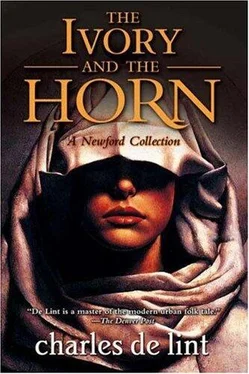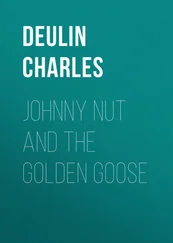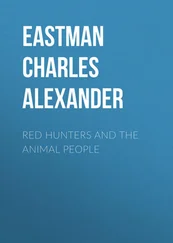— Are you kidding? Life's like art. You have to work hard to keep it simple and still have meaning. It's so much easier just to deal with everything in how it relates to yourself. You have to really concentrate to keep an open mind, to pay attention to the broader view, to stay aware of what's going on outside your own skin.
— And if you don't?
— Think of all you've got to lose.
Four directions blow the sacred winds
We are standing at the center
Every morning wakes another chance
To make our lives a little better
— Kiya Heartwood, from "Wishing Well"
This day Coyote is feeling pretty thirsty, so he goes into Joey's Bar, you know, on the corner of Palm and Grasso, across from the Men's Mission, and he lays a nugget of gold down on the counter, but Joey he won't serve him.
"So you don't serve skins no more?" Coyote he asks him.
"Last time you gave me gold, it turned to shit on me," is what Joey says. He points to the Rolex on Coyote's wrist. "But I'll take that. Give you change and everything."
Coyote scratches his muzzle and pretends he has to think about it. "Cost me twenty-five dollars," he says. "It looks better than the real thing."
"I'll give you fifteen, cash, and a beer."
"How about a bottle of whiskey?"
So Coyote comes out of Joey's Bar and he's missing his Rolex now, but he's got a bottle of Jack in his hand and that's when he sees Albert, just around the corner, sitting on the ground with his back against the brick wall and his legs stuck out across the sidewalk so you have to step over them, you want to get by.
"Hey, Albert," Coyote says. "What's your problem?"
"Joey won't serve me no more."
"That because you're indigenous?"
"Naw. I got no money."
So Coyote offers him some of his whiskey. "Have yourself a swallow," he says, feeling generous, because he only paid two dollars for the Rolex and it never worked anyway.
"Thanks, but I don't think so," is what Albert tells him. "Seems to me I've been given a sign. Got no money means I should stop drinking."
Coyote shakes his head and takes a sip of his Jack. "You are one crazy skin," he says.
That Coyote he likes his whiskey. It goes down smooth and puts a gleam in his eye. Maybe, he drinks enough, he'll remember some good time and smile, maybe he'll get mean and pick himself a fight with a lamppost like he's done before. But one thing he knows, whether he's got money or not's got nothing to do with omens. Not for him, anyway.
***
But a lack of money isn't really an omen for Albert either; it's a way of life. Albert, he's like the rest of us skins. Left the reserve, and we don't know why. Come to the city, and we don't know why. Still alive, and we don't know why. But Albert, he remembers it being different. He used to listen to his grandmother's stories, soaked them up like the dirt will rain, thirsty after along drought. And he tells stories himself, too, or pieces of stories, talk to you all night long if you want to listen to him.
It's always Coyote in Albert's stories, doesn't matter if he's making them up or just passing along gossip. Sometimes Coyote's himself, sometimes he's Albert, sometimes he's somebody else. Like it wasn't Coyote sold his Rolex and ran into him outside Joey's Bar that day, it was Billy Yazhie. Maybe ten years ago now, Billy he's standing under a turquoise sky beside Spider Rock one day, looking up, looking up for a long time, before he turns away and walks to the nearest highway, sticks out his thumb and he doesn't look back till it's too late. Wakes up one mourning and everything he knew is gone and he can't find his way back.
Oh that Billy he's a dark skin, he's like leather. You shake his hand and it's like you took hold of a cowboy boot. He knows some of the old songs and he's got himself a good voice, strong, ask anyone. He used to drum for the dancers back home, but his hands shake too much now, he says. He doesn't sing much anymore, either. He's got to be like the rest of us, hanging out in Fitzhenry Park, walking the streets, sleeping in an alleyway because the Men's Mission it's out of beds. We've got the stoic faces down real good, but you look in our eyes, maybe catch us off guard, you'll see we don't forget anything. It's just most times we don't want to remember.
***
This Coyote he's not too smart sometimes. One day he gets into a fight with a biker, says he going to count coup like his plains brothers, knock that biker all over the street, only the biker's got himself a big hickory-handled hunting knife and he cuts Coyote's head right off. Puts a quick end to that fight, I'll tell you. Coyote he spends the rest of the afternoon running around, trying to find somebody to sew his head back on again.
"That Coyote," Jimmy Coldwater says, "he's always losing his head over one thing or another."
I tell you we laughed.
***
But Albert he takes that omen seriously. You see him drinking still, but he's drinking coffee now, black as a raven's wing, or some kind of tea he brews for himself in a tin can, makes it from weeds he picks in the empty lots and dries in the sun. He's living in an abandoned factory these days, and he's got this one wall, he's gluing feathers and bones to it, nothing fancy, no eagle's wings, no bear's jaw, wolf skull, just what he can find lying around, pigeon feathers and crow's, rat bones, bird bones, a necklace of mouse skulls strung on a wire. Twigs and bundles of weeds, rattles he makes from tin cans and bottles and jars. He paints figures on the wall, in between all the junk. Thunderbird. Bear. Turtle. Raven.
Everybody's starting to agree, that Albert he's one crazy skin.
Now when he's got money, he buys food with it and shares it out. Sometimes he walks over to Palm Street where the skin girls are working the trade and he gives them money, asks them to take a night off. Sometimes they take the money and just laugh, getting into the next car that pulls up. But sometimes they take the money and they sit in a coffee shop, sit there by the window, drinking their coffee and look out at where they don't have to be for one night.
And he never stops telling stories.
"That's what we are," he tells me one time. Albert he's smiling, his lips are smiling, his eyes are smiling, but I know he's not joking when he tells me that. "Just stories. You and me, everybody, we're a set of stories, and what those stories are is what makes us what we are. Same thing for whites as skins. Same thing for a tribe and a city and a nation and the world. It's sail these stories and how they braid together that tells us who and what and where we are.
"We got to stop forgetting and get back to remembering. We got to stop asking for things, stop waiting for people to give us the things we think we need. All we really need is the stories, We have the stories and they'll give us the one thing nobody else can, the thing we can only take for ourselves, because there's nobody can give you back your pride. You've got to take it back yourself.
"You lose your pride and you lose everything. We don't want to know the stories, because we don't want to remember. But we've got to take the good with the bad and make ourselves whole again, be proud again. A proud people can never be defeated. They lose battles, but they'll never lose the war, because for them to lose the war you've got to go out and kill each and every one of them, everybody with even a drop of the blood. And even then, the stories will go on. There just won't be any skins left to hear them."
***
This Coyote he's always getting in trouble. One day he's sitting at a park bench, reading a newspaper, and this cop starts to talk big to one of the skin girls, starts talking mean, starts pushing her around. Coyote's feeling chivalrous that day, like he's in a white man's movie, and he gets into a fight with the cop. He gets beat up bad and then more cops come and they take him away, put him in jail.
Читать дальше












